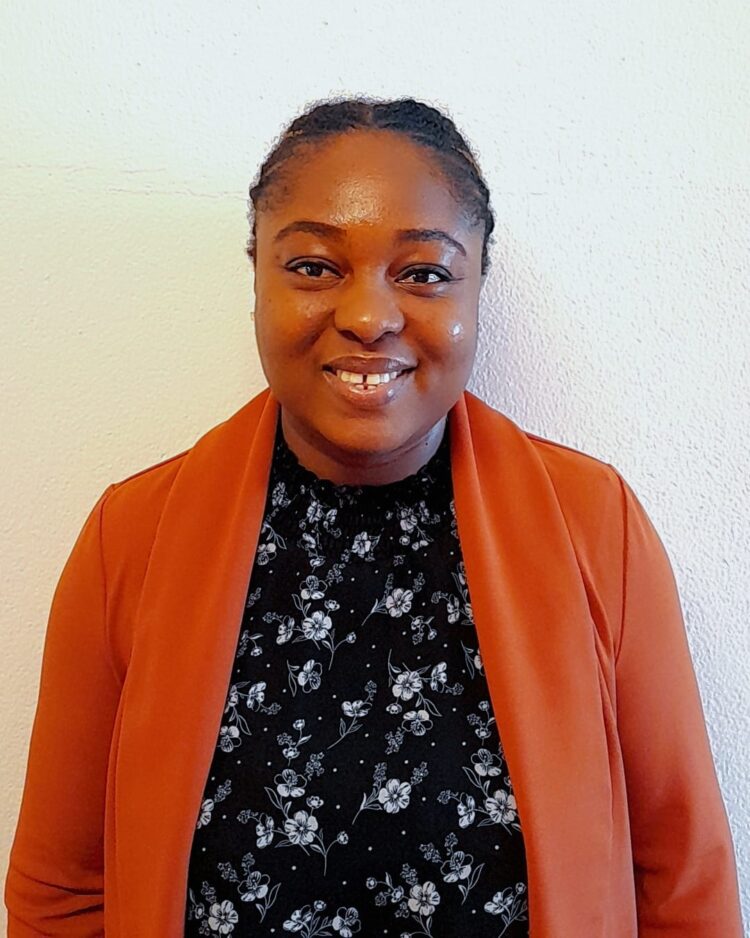
Gastwissenschaftlerin aus Kanada am td
Anita Ezeagba, Doktorandin der Biosystemtechnik an der Universität von Manitoba in Winnipeg, Kanada, verbrachte den Oktober als Gastwissenschaftlerin an unserer Professur. Über ihren Aufenthalt schrieb sie:
A research visit to the University of Technology, Dresden (Technische Universität Dresden — TUD), has been a transformative milestone in my academic journey. It has significantly shaped my research approach and expanded my intellectual horizons. Known for its strong emphasis on interdisciplinary studies and cutting-edge research facilities, TUD provided me with the ideal environment to deepen my knowledge, enhance my skills, and engage with some of the brightest minds in my field. This experience enriched my current studies and set a new trajectory for future research endeavors.
One of the most valuable aspects of my visit was the opportunity to engage with the diverse and dynamic research community at TUD. The university’s reputation for fostering a collaborative research culture enabled me to interact with leading scholars and fellow researchers from various disciplines. These interactions facilitated a vibrant exchange of ideas and exposed me to innovative approaches that I had not previously considered. The discussions and feedback from experienced professors and peers helped refine my research focus, leading to more precise and impactful outcomes.
TUD is renowned for its state-of-the-art research facilities, laboratories, and extensive academic resources. Having access to these advanced tools allowed me to conduct experiments and data analyses with greater precision and efficiency than ever before. The experience of working with cutting-edge technologies not only enhanced the quality of my research but also broadened my technical skills. The resources at TUD gave me insights into new methodologies and experimental techniques that have become integral to my research process, empowering me to tackle complex problems with a more informed approach.
The TUD’s emphasis on innovation and interdisciplinary collaboration significantly influenced my research methodology. The research groups I collaborated with encouraged a holistic approach to problem-solving, integrating principles from different fields to arrive at novel solutions. This exposure to innovative methodologies prompted me to think more creatively and to design experiments that were both comprehensive and adaptable. The knowledge gained during this period has since become a cornerstone of my research strategy, guiding me toward more effective and efficient ways of conducting studies.
One of the lasting impacts of my visit to TUD was the opportunity to establish a global network of collaborators. Working closely with international scholars specifically in the area of human-machine interaction (HMI) allowed me to build relationships that extend beyond geographical and cultural boundaries. Helge Wanta, an HMI scholar at the Chair of Industrial Design Engineering at TUD, developed a prototype user interface (UI) in the Feldschwarm project for remotely monitoring a fleet/swarm of autonomous agricultural machines (AAMs) in operation on a field. I was involved in incorporating an effective feedback system into the Feldschwarm UI to enhance the situation awareness of the remote operator/user of the AAMs. Situation awareness means the perception of the elements in an environment within a volume of time and space, the comprehension of their meaning, and the projection of their status in the near future. The major challenge of automation is poor situation awareness. Fully automated machines such as AAMs imply that there will be no human involvement in the navigation and control of these machines. However, due to the circumstances in which these machines operate, it is difficult to eliminate the human from the control loop. The human is required to play a passive role as a remote supervisor and is no longer actively engaged in the decision-making process as well as the data processing resulting in decreased situation awareness due to no feedback from the autonomous system. The aforementioned automation challenge drives my research focus at the Agricultural Ergonomics Laboratory, Department of Biosystems Engineering at the University of Manitoba, Canada. It involves the assessment of feedback modalities for remotely supervised AAMs. The connections created during my research visit have opened up avenues for future collaborations, joint research projects, and even potential academic partnerships. The relationships I formed during my time in Dresden are invaluable assets that will continue to support my research career, fostering a spirit of shared knowledge and global cooperation.
Living and conducting research in Dresden provided me with a unique cultural experience that enriched my personal growth. Immersing myself in German culture and the local academic environment taught me adaptability, open-mindedness, and resilience. Navigating the challenges of a new language and societal norms broadened my perspective and improved my ability to engage in cross-cultural communication. These experiences have not only made me more adaptable to diverse environments but have also enhanced my ability to work in multicultural research teams—a crucial skill in today’s interconnected world.
I would like to express my deepest gratitude to Professor Danny Mann (my academic advisor at the University of Manitoba, Canada), Sebastian Lorenz, and the HMI team at the Chair of Industrial Design Engineering for their invaluable support and guidance in making my research visit to the TUD possible. Their encouragement, mentorship, and belief in my potential were instrumental in this opportunity becoming a reality. I am truly thankful for their dedication to my academic growth and for providing me with the chance to expand my knowledge and experience in such a prestigious academic setting. This research visit would not have been possible without their unwavering support and generosity.
Auch wir danken Anita herzlich für die Impulse und Perspektiven, die sie uns gegeben hat. Wir schätzen den offenen Austausch über Fach- und Landesgrenzen hinweg sehr und freuen uns auf zukünftige Kooperationen.





